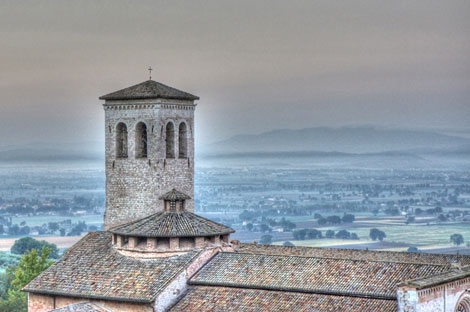A serial journal of cogent reflections and irreverent insights on the social effects of capitalism and the roots of partisan politics. Pairing prose with HDR photography and “flash points” drawn from current and historical perspectives, the author seeks to recover lost wisdom and courageous action beyond the shouting and noise of today’s headlines.
Chapter Eight
Planetary Consciousness Arises, Cautiously
“Slowly and painfully, we are seeing worldwide acceptance of the fact that the wealthier and more technologically advanced countries have a responsibility to help underdeveloped ones. Not only through a sense of charity, but also because only in this way can we ever hope to see any permanent peace and security for ourselves.”
~ Sir Edmund Hillary, Schoolhouse in the Clouds

World Population, 1967
“[H]istorians have estimated that the world’s population at the beginning of the Christian era was 250 million. By the middle of the seventeenth century it had doubled, rising to about 500 million. By the middle of the nineteenth it had doubled again and reached the first billion mark.… By 1965, it was well over three billion, and the doubling period had shrunk from 1,500 years to about 35 years …
“Returning to the planet as a whole, the prospect is: 7 billion people in 2000; 14 billion in 2035; 25 billion a hundred years from now. ‘But,’ as a sober Ford Foundation report says, ‘long before then, in the face of such population pressure, it is inevitable that the Four Horsemen will take over.’”
— Arthur Koestler, The Ghost in the Machine
 United Nations, 1969
United Nations, 1969
I do not wish to seem overdramatic, but I can only conclude from the information that is available to me as secretary-general that the members of the United Nations have perhaps ten years left in which to subordinate their ancient quarrels and launch a global partnership to curb the arms race, to improve the human environment, to defuse the population explosion, and to supply the required momentum to development efforts. If such a global partnership is not forged within the next decade, then I very much fear that the problems I have mentioned will have reached such staggering proportions that they will be beyond our capacity to control.
— U Thant, Secretary-General, United Nations

New York City, 1973
In the early 1970s, I worked summers for my father delivering packages and assembling hand machines that stapled nailheads and rhinestones into fabric. His shop was almost exactly two miles from the Triangle Shirtwaist Factory on 23–29 Washington Place, which burned down in 1911. It was hot and muggy in his shop, and I didn’t enjoy working there, but it was nothing like the sweatshops that had existed over a half-century earlier. One reason for this was unions.
Marx was correct in predicting, counter to the sentiment of his time, that workers would not simply have more children, diluting their bargaining power, but would become ever more skillful in negotiating their immediate and mostly economic self-interest. For Marx, however, it would be this very advance that would trigger the system’s instability, as the workers’ demands would threaten profit and control. Owners would reject their workers’ ever-increasing demands, and workers would seek to strike back. Marx was quite certain that both sides would remain unconscious of their predicament. They would battle ceaselessly with each other until social unrest upended the whole system. How different circumstances were for me.
I recall one evening riding home with my father on a bus that took us from Manhattan to Queens. He wondered if I would be interested in taking over the business one day. It was an awkward moment between us, and I sat in silence looking out the window. “I don’t think so,” I mumbled. He didn’t respond, and we sat together in silence the rest of the way.
For me, taking over the business would have been abandoning myself. I would have preferred stapling nailheads through my hand. I was in college and passionate about finding alternatives to what I believed were soul-crushing institutional forces beginning in public schools and continuing through college, professional education, and most definitely the workplace.
My plan was to chart a new path, although how I might do that was unknown to me. I shared, with many others, a belief that economic survival was no longer the key determinant of career choices. Survival was at the bottom of a hierarchy of needs that included meaning, creativity, and human development. The work of the future involved social change, greater personal and interpersonal depth, and healing our planet earth. The stars in the sky proclaimed that this was the Age of Aquarius—or at least the stars on Broadway shouted it out loud, which was good enough for me.
Next Week: Wages Decline, Credit Expands, Rapidly
What I did not know, setting my sights on creativity and meaning, was that the economic rocket ship we were on was about to sputter and go sideways. For 150 years, capitalism in the United States had functioned, despite its busts and booms, to move in an upward spiral. Working people, on average, saw their real wages rising decade after decade. Until the 1970s, every generation had a reasonable chance to expect a better life than the previous one.
From 1978 to 2011, real wages after adjusting for inflation went flat, nada, nothing. I’ll say it again…




0 Comments